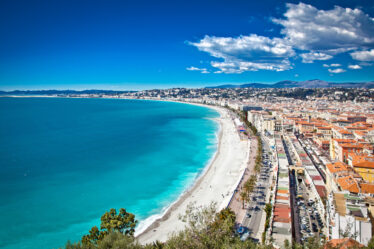
What are the customs and living habits of Switzerland?
1. Daily life: The Swiss love cleanliness, not only the personal living room is clean and tidy, but also pay great attention to maintaining the health of public places, both urban and rural, there is very little litter phenomenon. They also attach great importance to the problem of environmental pollution, so there are strict and specific provisions in protecting environmental health and preventing pollution. For example, household garbage must be sorted and bagged. At the designated place on the designated date, the glass bottle alone stipulates that residents must put the waste bottle into the recycling equipment on the street, and also put it into the designated opening according to the three colors of white, brown and mixed. The Swiss are also able to do what they are asked without supervision or cost. Expats who want to get along well with the Swiss, gain their trust and goodwill, should also abide by these rules, because it is not only a matter of law, but also a matter of courtesy.
2. Dress: The Swiss believe that a person should dress in accordance with their status and personal characteristics. They usually wear suits or dresses on formal occasions, avoiding too bright and bright colors, but think that brown clothing is not serious enough. Dress casually and plain in daily life, and some girls do not even pale you. They like pure natural fabrics, and regard chemical fiber fabrics as low-grade goods. The traditional costumes of the various nationalities in Switzerland are only seen during festivals. The most common is for men to wear a large-sleeved shirt on top, a short jacket, and trousers below the knee. Women wore silk blouses and velvet vests on top and long skirts on the bottom. The Swiss usually wear a few accessories, artificial jewelry does not agree.
3. Eating habits: They mainly eat Western food, mainly pasta, but also eat rice. I like to eat chicken and eggs, but also eat beef and mutton, pork and game. The Swiss hotpot used to shabu and fry food is not a stockpot, but an oil pot. Usually also like to eat vegetables and fruits, love to eat potatoes. Swiss cuisine fine workmanship, pay attention to color, aroma, taste, type, hold a simple and easy dinner, only a main course, a soup, cold and sweet. Drink aperitif before the meal, drink digestive wine after the meal, eat fish drink white wine, meat drink red wine. When guests arrive, they are served traditional dry cheese and egg paste. In daily life, the Swiss tend to drink beer and wine as ordinary drinks, like coffee and black tea. Be careful not to make noise while eating; Do not blow hot food or soup with your mouth. And don’t talk about dieting and losing weight at the dinner table. It is considered a sign of great appreciation to take some of the food you have already tasted at the banquet.
4. Taboo aspects: Remember not to litter, do not smoke in public places where smoking is prohibited, do not dry clothes on the balcony to affect the appearance of the city. The Swiss are more conservative and consider it impolite to show off their wealth. In public places to maintain, conversation should avoid personal privacy (age, occupation, income, family, etc.) and the internal affairs of the country; Compliment the clock, Swiss Army knife and chocolate, or talk about sports and travel. The Swiss like Onions, not only to make it into dishes, but also make it into crafts, and even wear. When men send flowers to women, it is generally not appropriate to send 3 flowers, thinking that 3 flowers have romantic colors. They love animals, but they don’t like owls, which are symbols of death. They have a strong preference and worship for the number “11”, which is regarded as an auspicious number and is said to be related to Ancient Solotuin becoming the 11th Canton of the Swiss Confederation. they taboo “13” and “friay” as numbers and dates that are repudiated and feared and bring misfortune or disaster to people.
5. Swiss wine is Europe’s top, but the annual production is too small, their own beautiful drink is good, not willing to export. The picture shows the World Heritage Vineyard of Lavaux, which stretches for more than 40 kilometers along Lake Geneva. If you have the opportunity to visit Switzerland, you may wish to experience their wine culture, you will not be disappointed.


